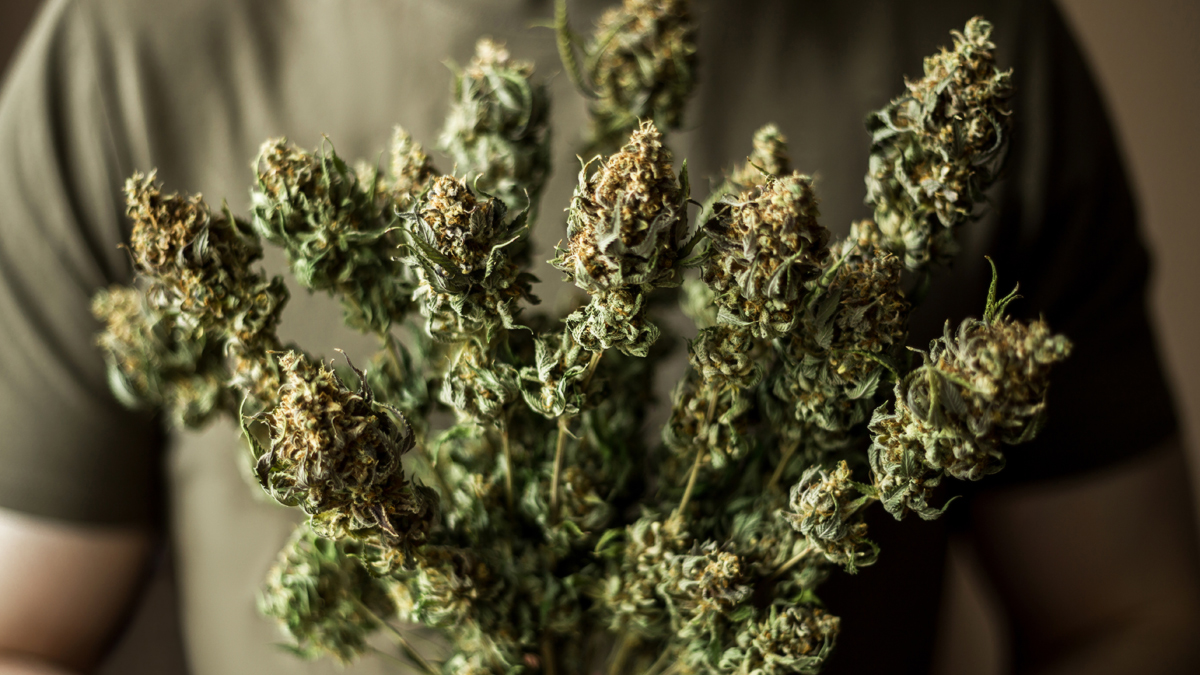As medicinal cannabis rockets globally, here’s how Australia can become a production powerhouse

Picture: Getty Images
Owing to the recent legalisations in different countries, the use of medical cannabis is gaining serious momentum worldwide.
According to the latest research, the global medical cannabis market is growing at 25 per cent per year, and is expected to reach US$67 billion by 2028.
North America is set to dominate the market during this period, with Europe biting its tail.
So where does Australia fit into this landscape?
Our legal cannabis industry is still relatively nascent, and is currently estimated to be just under US$200m.
But the research also says we’re about to explode in the next five years, with growth rate of over 40 per cent expected per year.
Australia legalised cannabis growing for medicinal and scientific purposes at the federal level in 2016.
Recreational use however, is still illegal in all states with the exception of the ACT, which legalised possession of small amounts for personal use in 2020.
Although we started slow out of the gates compared to other developed countries, the government has in general been very supportive of the industry.
In May this year, the first medicinal cannabis product, Epidyolex, was listed under Australia’s PBS (Pharmaceutical Benefits Scheme), saving qualifying patients $24k a year.
According to cannabis expert, Hugo Gray of The Green Fund, however, the real value for Australian cannabis will likely be derived from the global export market.
Gray believes that Australia is well positioned to become a medicinal cannabis production powerhouse, thanks to our considerable experience in the agro-pharma sector and strict regulatory standards, as well as our ideal climate.
Australia as the gold standard
This rapid development has pushed the industry into a “greenhouse arms race” to see who can achieve the greatest growing capacity, according to Gray.
He believes that Australia’s high standards, which require all companies to adhere to the Good Manufacturing Practice (GMP), will eventually differentiate our cannabis produce from the rest of the world.
“While America and Canada may have enjoyed a substantial head start when it comes to the recreational market, one crucial area where they have both lagged behind is pharmaceutical quality production standards.”
“Although marijuana producers in the US must currently meet the recommended guidelines set out by the FDA, they do not need to adhere to the same GMP requirements that Australian cannabis companies face,” he added.
This might seem like a minor difference but it’s actually fairly significant, as GMP is considered the “gold standard” for pharmaceutical quality compliance.
It’s also an essential requirement for exporting cannabis to the increasingly lucrative European market.
ASX-listed ECS Botanics (ASX:ECS) managing director, Alex Keach, also agrees with this assessment.
Speaking exclusively with Stockhead, Keach said that due to our strict high standards, Australia is ironically not playing on an even playing field.
He said that with respect to cannabis production, Australia upholds its obligations under the UN Single Convention on Narcotic Drugs, but other countries are not.
The Convention, which was ratified in 1961 by 73 countries, aims to combat drug abuse by coordinated international action.
“When Australia imports non-GMP cannabis products, it imports to a lower quality standard than what we are required to domestically,” Keach explained.
“These imports don’t meet normal TGA pharmaceutical standards. But then importers pack and label it through a GMP manufacturing facility here, and call it Australian GMP cannabis.”
“I liken it to cleaning dirty money through a casino; you’re washing cannabis into the legal medicinal cannabis and UN compliant framework, and also into a higher quality standard where it didn’t start out.”
Keach believes that the TGA will eventually close down this loophole of importing non-GMP cannabis.
This, he says, is inevitable as we become more independent and able to grow and supply our own medicinal cannabis for patients domestically, without the need for imports.
And that’s exactly what ECS Botanics is doing – positioning itself as one of the few companies globally that’s employing a seed-to-medicine business model.
The company also manufactures to GMP pharmaceutical standards, and operates under licences that uphold Australia’s obligations to the 1961 UN convention.
ECS cultivates premium dry flower (for inhalation), of which there is a current shortage in Australia, as well as biomass which is manufactured into medicinal oils.
It owns cannabis facilities located on the Murray River in Victoria, and also near Launceston in Tasmania, which is where it produces large-scale CBD, and industrial hemp for its food and wellness brand.
The company has recently lodged plans with the federal Office of Drug Control (ODC) for a major expansion of its cultivation area.
The expansion will see ECS expand its Tasmanian operations from the existing 2,500sqm facility to a large-scale growing area comprising 320,000 sqm – 100 times greater than its current licensed production in Tasmania.
Keach sees this expansion as the logical move to not only meet the expected surge in demand here and overseas, but also to build economies of scale and produce substantial volumes of low cost pharmaceutical ingredients.
A lot of the cannabis giants overseas are beginning to wake up to the fact of how well Australia is strategically placed to benefit from the growth of medicinal cannabis markets overseas.
“You can set up farms in Colombia and other low labour cost countries, but at the end of the day, for big pharmaceutical and European cannabis companies, they want low risk, certainty of supply, and they want to buy Australian first,” he explained.
‘I think Australia can have its cake and eat it too. Because we are good at it, we can manufacture at scale, and reduce costs without compromising on quality standards. Basically, Australia does exports and commerce in this area category extremely well, ” he added.
Australia’s biggest medicinal cannabis farm
This demand for Australian grown cannabis has recently attracted a cohort of domestic growers vying to ride the global wave.
One such company is privately-owned Australian Natural Therapeutics Group (ANTG).
The company is embarking on building a facility that will soon become the biggest medicinal marijuana farm in Australia.
Although exact numbers are still being worked out, the cost to build its greenhouse facilities in Toowoomba Qld is reported to be north of $400 million.
Stockhead caught up with ANTG CEO, Matt Cantelo, who said that the greenhouse facility is currently still under a planning and development phase.
The farm will target the Australian and German cannabis markets, which Cantelo believes will rise dramatically in the next few years.
“If you look at the TGA website, the numbers are increasing on a monthly basis for special access, prescriptions, as well as authorised prescribers,” Cantelo said.
“They’re increasing at the rate of knots, and add to that the German growth rate in new prescriptions, that’s also rising significantly.”
Earlier this year, ANTG signed a $92 million, nine-year off-take deal with German company Cannamedical Pharma to export commercially-grown Australian medical cannabis to Europe.
Asked why European companies like Cannamedical would want to purchase their cannabis plants all the way from Australia, and if other European companies would follow suit, Cantelo is confident this will indeed be the case.
He points to the TGA’s high standards as the magnet that will pull overseas customers here.
“Absolutely. TGA is considered the global gold standard.”
“If you can sell pharmaceutical products in Australia, you can sell them anywhere because the standards here are so high. We’re seeing a lot of demand for Australian produce across the board, but certainly when it comes to medical cannabis,” said Cantelo.
The Toowoomba farm is set to begin operations within six months, and will produce 500 tonnes of marijuana a year with an export value of more than $1 billion.
With that kind of mouth-watering figure, the smart money is sure to closely follow – which would only accelerate the burgeoning industry over the next few years.
At Stockhead, we tell it like it is. While ECS Botanics is a Stockhead advertiser, it did not sponsor this article.
Related Topics
UNLOCK INSIGHTS
Discover the untold stories of emerging ASX stocks.
Daily news and expert analysis, it's free to subscribe.
By proceeding, you confirm you understand that we handle personal information in accordance with our Privacy Policy.








